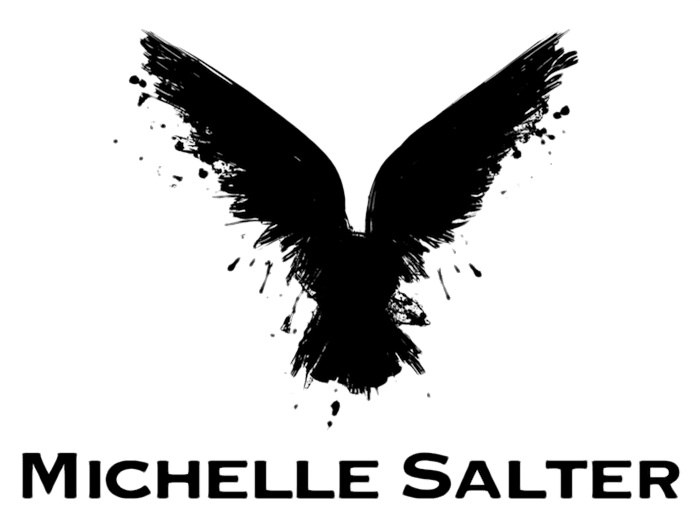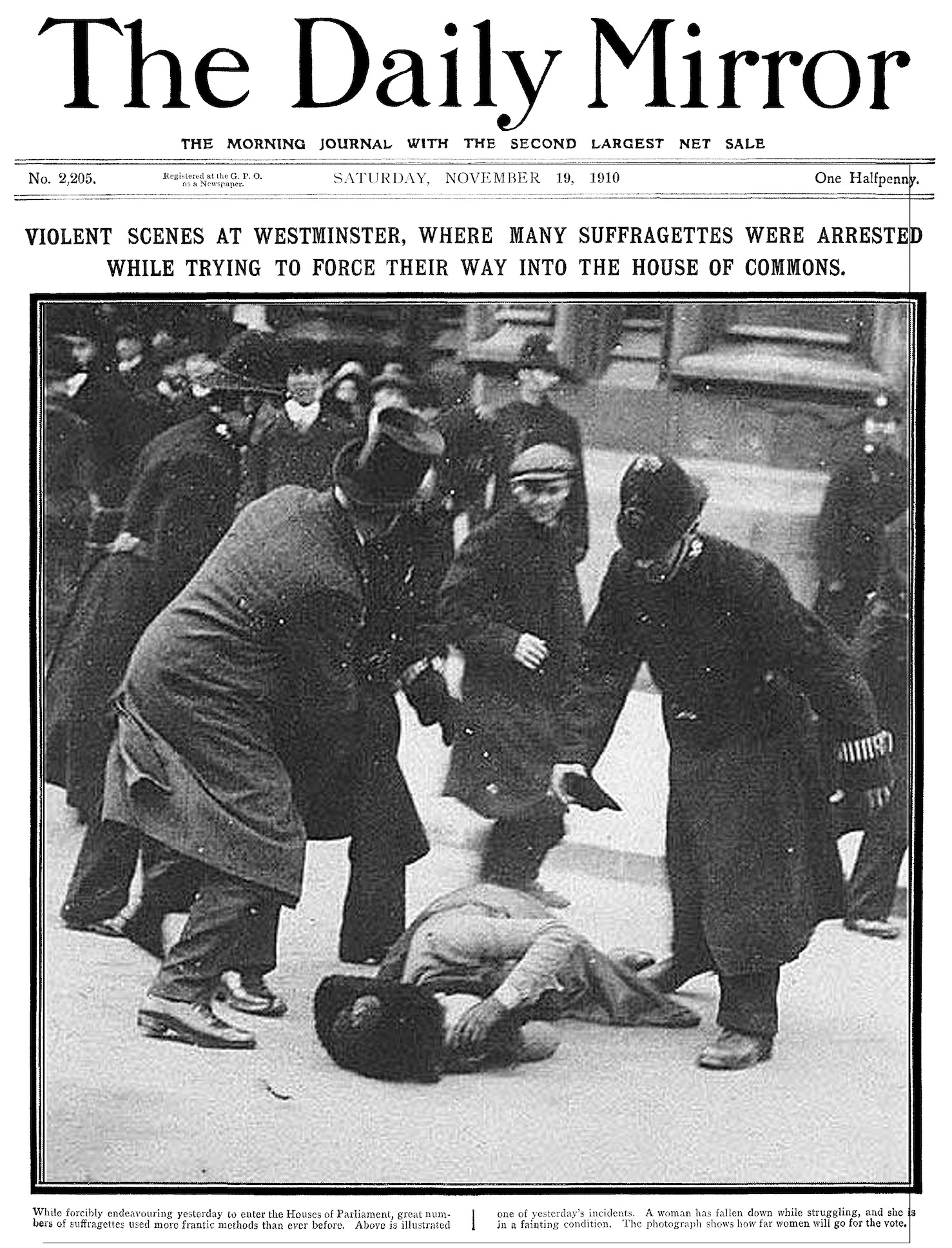Black Friday in 1910 was a day of violence towards women
This front page of the Daily Mirror on 19 November 1910 shows 50-year-old Ada Wright being struck by a policeman as she tried to enter the House of Commons.
On 18 November 1910, 300 women marched to the Houses of Parliament. They were met by lines of policemen and crowds of male bystanders who attacked them for the next six hours. The day became known as Black Friday.
The demonstration had arisen when H. H. Asquith, Prime Minister and leader of the Liberal Party, had gone back on his promise of the January 1910 general election campaign to introduce a Conciliation Bill to allow some women the right to vote.
The Conciliation Bill of 1910 would have given about a million women, mostly wealthy property-owners, the vote. Most suffragettes considered this a compromise, but Emmeline Pankhurst, leader of the Women's Social and Political Union (WSPU), suspended militant action, including window-breaking and assaults on politicians, in anticipation of the bill passing into law.
Although MPs backed the bill and passed its first and second readings, Asquith refused to grant further parliamentary time. On 18 November 1910, following a breakdown in relations between the House of Commons and House of Lords, he called another general election in an attempt to increase the Liberal government's majority.
This effectively scuppered any chance of the Conciliation Bill being passed. After decades of campaigning, suffragists were furious to be denied even this compromise of allowing some women the vote. Emmeline Pankhurst and her daughter Christabel felt betrayed, and members of the WSPU gathered in Caxton Hall, Westminster.

There had already been a plan to send a peaceful deputation of the WSPU to the House of Commons. Instead, 300 angry women marched on Parliament.
Suffragette Annie Kenney said: "There was a great storm burst. All the clouds that had been gathering for weeks suddenly broke, and the downpour was terrific... There was not one of us who would not have gone to our death at that moment, had Christabel so willed it."
At 1.20pm, Prime Minister Asquith refused to see a WSPU deputation, but the protestors stayed in Parliament Square and tried to enter the House of Commons.
This triggered a brutal response from the policemen, who beat and hit the protestors. Some were thrown into the hostile crowd and were subjected to more violent abuse.
It’s recorded that because a suffragette demonstration had been anticipated, the Metropolitan Police had drafted officers from across London, including areas like Whitechapel. Many of these policemen were not used to dealing with suffragette protests and became highly aggressive.

The suffragettes claimed plain-clothes policemen had gone amongst the crowd and were instrumental in carrying out and inciting the violence. There were reports of repeated sexual assaults of female protesters. Many women complained of having their breasts twisted and pinched.
A suffragette commented: "Several times, constables and plain-clothes men who were in the crowds passed their arms round me from the back and clutched hold of my breasts in as public a manner as possible, and men in the crowd followed their example... My skirt was lifted up as high as possible, and the constable attempted to lift me off the ground by raising his knee. This he could not do, so he threw me into the crowd and incited the men to treat me as they wished".
115 women were arrested that day. But only 4 men. All were released without charge the following day on Home Secretary Winston Churchill’s orders. He was blamed for encouraging the police's violent response.
135 demonstrators were interviewed; nearly all described acts of violence against the women. 29 of the statements included details of sexual assault. Winston Churchill rejected calls for a public inquiry.
The Edwardian press was unsympathetic towards the suffragettes, and the sexual assaults were generally unreported. Most journalists blamed the women for inciting the violence. Only the Daily Mirror commented that the police seemed to enjoy the fighting.

Meeting of the WSPU on Black Friday

